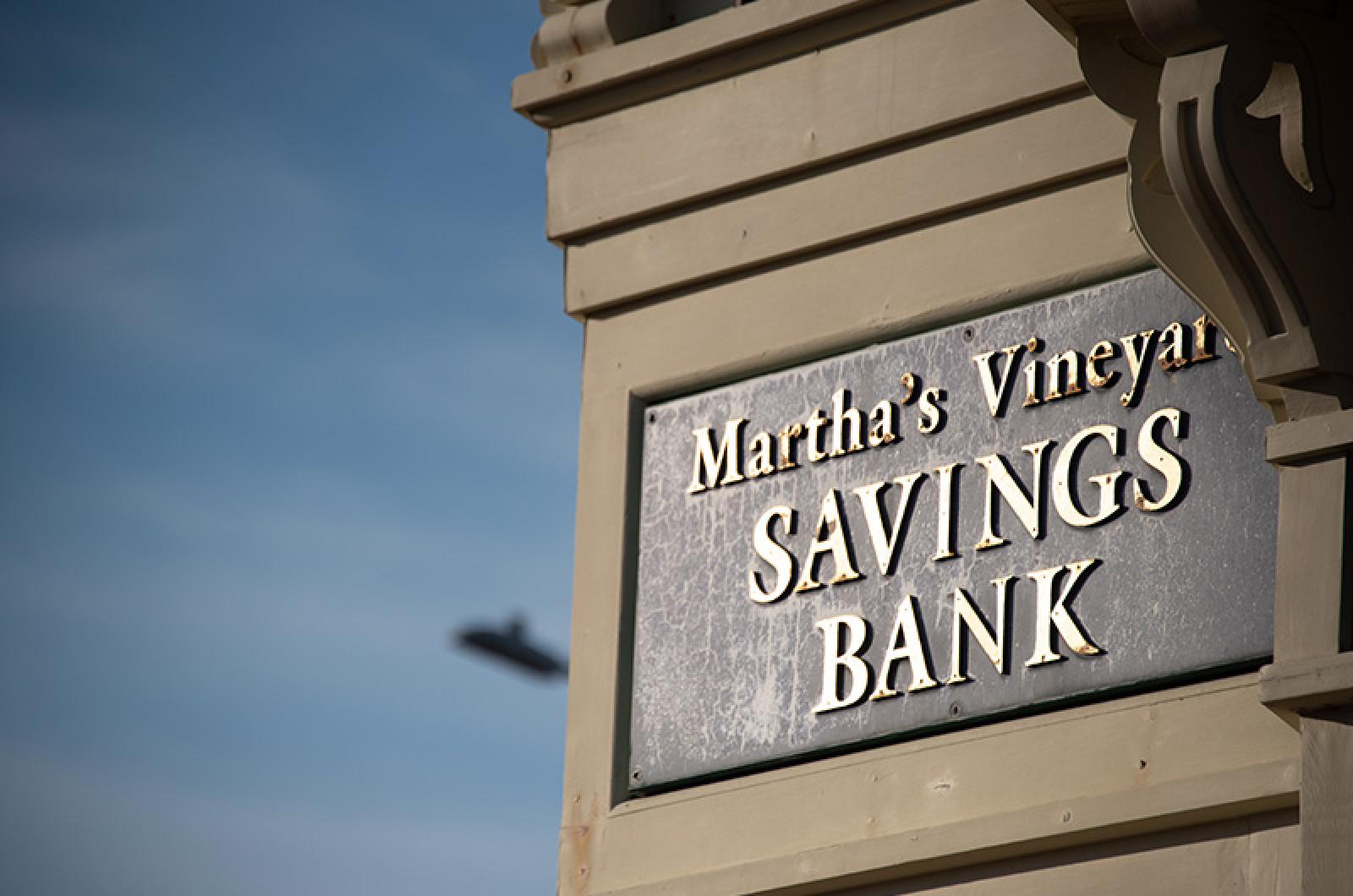Community banks on Martha’s Vineyard worked at a furious pace over the last two weeks to process hundreds of loan applications for small businesses seeking financial relief during the coronavirus emergency.
Money in the Paycheck Protection Program, a federal $349 billion loan-relief fund, ran out on Thursday. Efforts to refund the program have been stalled in Congress.
But before that happened, Martha’s Vineyard Savings Bank president James Anthony said some 800 Island businesses had filed applications and many will begin to see approvals for funding. Over 1.6 million loans were approved nationwide, including 46,937 to small businesses in Massachusetts, before the program was closed, according to the Small Business Administration, which guarantees the loans.
“It all happened remarkably fast,” Mr. Anthony said.
Burt Talerman, co-president of Cape Cod 5, which has a full service branch in Vineyard Haven, said his bank too saw a large volume of applications.
“Volume on this has been very significant,” Mr. Talerman said.
Passed by Congress last month, the Paycheck Protection Program is part of the Coronavirus Aid, Relief, and Economic Security (CARES) Act. Mr. Anthony said any small business with fewer than 500 employees can apply for a loan as high as two and a half times their monthly payroll, capped at $10 million. He said all types of businesses, from one-person farming operations to large-scale restaurants, have applied for the loan.
He said after applications were made available April 3, the bank kept 30 people working around the clock to process the applications, which were still coming in at a pace of 40 per day as the federal officials announced Thursday that fund had run dry. Speaking to the Gazette by phone, Mr, Anthony twice had to hold to take calls from bank clients.
“We’ve gotten ourselves up and over the wave,” he said. “But we are dedicating all of our energy towards as many loan guarantee acceptances from the SBA as possible.”
The loans cover payroll-related expenses, such as wages, mortgage, rent, utilities and overhead costs. The loans are forgivable, meaning that businesses can be reimbursed if the funds are used in eight weeks, 75 per cent of the funds are spent on payroll and the business is at full employment by June 30.
With many businesses closed and temporarily laying off staff, Mr. Anthony acknowledged concerns that some would not qualify for the forgiveness, as they may not be able to spend the money in the eight-week window or reach full employment by the end of June. He said that includes much of the restaurant industry, which is restricted to takeout until May 4 under the statewide stay-at-home order. While some Island restaurants have switched to takeout, the vast majority are closed, and employee layoffs are widespread.
Mr. Anthony said the bank functions as a liaison between businesses and the SBA, which ultimately has final approval over applications. He said the SBA has adopted a first-come, first-served approach, which explains the rush of applications over the past two weeks.
The application process has been clouded with confusion on all sides, Mr. Anthony said. As early as the first day, the SBA was already beginning to redefine the format of the application.
“We had people working to prepare in advance. By the night the application opened, we were already out of date,” he said.
He said the SBA’s intent was to get money out to businesses as soon as possible, and the process was launched as it was being written. Along the way, he said there have been significant tweaks to the process outlined by the SBA since April 3 to meet the high demand. Banks and businesses have been struggling to keep pace with the rapidly evolving process. “Its essentially like building a bike as they ride it. We’re on that journey with them,” Mr. Anthony said.
Though not all the applications have been approved by the SBA, Mr. Anthony said money has already begun to flow toward some.
Mr. Anthony said he has relayed the concerns of small businesses to the Federal Reserve in Boston, as they determine how to modify the program.
And while the applications show no sign of slowing down, Mr. Anthony said his team has begun to transition to the back end of the application process, which involves more work with the SBA to ensure approval of guaranteed loans.
Meanwhile, Mr. Anthony said normal banking activities continue.
And he was upbeat about the bank’s own recent $650,000 coronavirus relief inititiative, which allows consumers to buy gift certificates to help support local businesses, with the bank providing a match. The program runs through the month of April.







Comments (1)
Comments
Comment policy »